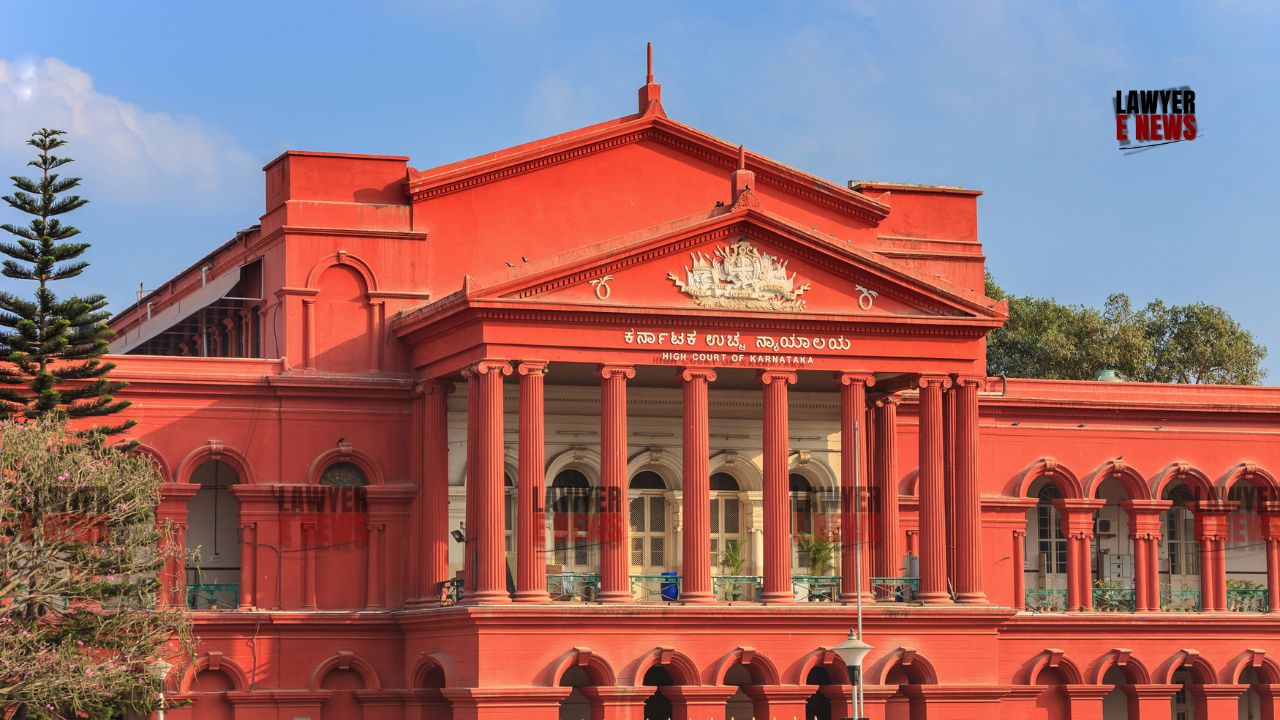-
by Admin
15 February 2026 5:35 AM



"Prosecution under Section 304-A IPC Not Permissible Alongside Section 92 of the Factories Act" – Justice Mohammad Nawaz. Karnataka High Court delivered a significant ruling in which G.V. Prasad and Balasubramaniam, petitioners challenging the legality of simultaneous criminal proceedings initiated under Section 304-A of the Indian Penal Code (IPC) while prosecution under Section 92 of the Factories Act, 1948, was ongoing for the same incident. The court held that the prosecution under Section 304-A IPC is impermissible when proceedings under the Factories Act are already in place, emphasizing that the special legislation (Factories Act) takes precedence over general criminal law to prevent double jeopardy.
The petitioners, who were the occupier and manager of Krishnaprasad Rice Mill Industries in Raichur, faced charges under Section 304-A read with Section 34 IPC following the death of an employee, Sujeet Paswan, due to electrocution on October 6, 2017. The incident occurred when Paswan was instructed to de-water a sump using an old ½ H.P. electric motor without proper safety precautions.
A separate complaint was filed by the State through the Assistant Director of Factories, citing violations of Sections 7-A(2)(a) and 7-A(2)(c) of the Factories Act and Rules 86(2) and 136 of the Karnataka Factories Rules, 1969, punishable under Section 92 of the Factories Act. The allegations pointed to failures in maintaining safe systems of work and neglecting to provide essential safety equipment like gloves and shoes.
The main legal question was whether concurrent prosecutions under Section 304-A IPC and Section 92 of the Factories Act were permissible for the same incident. The court noted:
Double Jeopardy Concern: The court highlighted that parallel proceedings under IPC and the Factories Act could result in double jeopardy, contravening Section 300 of the Cr.P.C. and Section 26 of the General Clauses Act, which prevents dual prosecution for the same offense.
Special vs. General Law: Justice Nawaz referenced previous decisions, including Ananthakumar v. State of Karnataka (AIR Online 2019 KAR 565) and M. Zakir Ahmed v. State of Karnataka (2021 SCC OnLine KAR 1234), which held that the Factories Act's comprehensive penal provisions take precedence. The Factories Act is a special enactment designed to address workplace safety and related offenses, making simultaneous IPC charges redundant.
The court allowed the criminal petition and quashed the proceedings in C.C. No. 260/2018 pending before the III Additional Senior Civil Judge and JMFC-III, Raichur. It ruled that prosecution under Section 304-A IPC was not permissible alongside Section 92 of the Factories Act, reaffirming the principle that the special law supersedes the general law in such cases to avoid legal overreach and procedural abuse.
"Section 92 of the Factories Act provides comprehensive penalties, including imprisonment and fines, making parallel prosecution under IPC for the same incident a violation of legal principles," noted Justice Mohammad Nawaz.
The Karnataka High Court’s ruling reinforced the statutory framework of the Factories Act as the primary legal instrument for workplace safety violations. It prevented concurrent prosecution under IPC for acts covered by the Factories Act to ensure fair trial principles and uphold legislative intent.
Date of Decision: October 22, 2024
G. V. Prasad and Balasubramaniam vs. The State through Raichur Rural Police Station and Sanjeetkumar
